Nusaybin: In constant fear of the state
The Turkish city Nusaybin is predominantly inhabited by Kurdish people and located directly on the closed border with Syria. However, people suffer more from the war that their own government is waging against the local population.
The fear among the Kurdish population is big. Hardly anyone wants to talk openly about politics, especially not with their real name. When there are no more customers in a kiosk in Nusaybin, the owner lets his frustration run free. Images from Istanbul are currently flickering across the television screen: the police have been beating a student for no reason.
The kiosk owner points to the screen and then says just two words in an internationally understandable way: “Erdoğan” and “Dictator” – unlike in German, the emphasis is on the last syllable.
Hate, violence and divison
Then he pulls out his smartphone and looks for an app to translate. With the help of technology, a conversation about the pictures shown on television and the general situation on site is then created. The government is forcibly repressing its own population, not just the Kurds, he emphasizes, and blames President Erdoğan for this development. “There used to be a bit of democracy here, in 2005, 2010,” he laments. But nowadays people can no longer express their opinions freely, they fear persecution by the state.
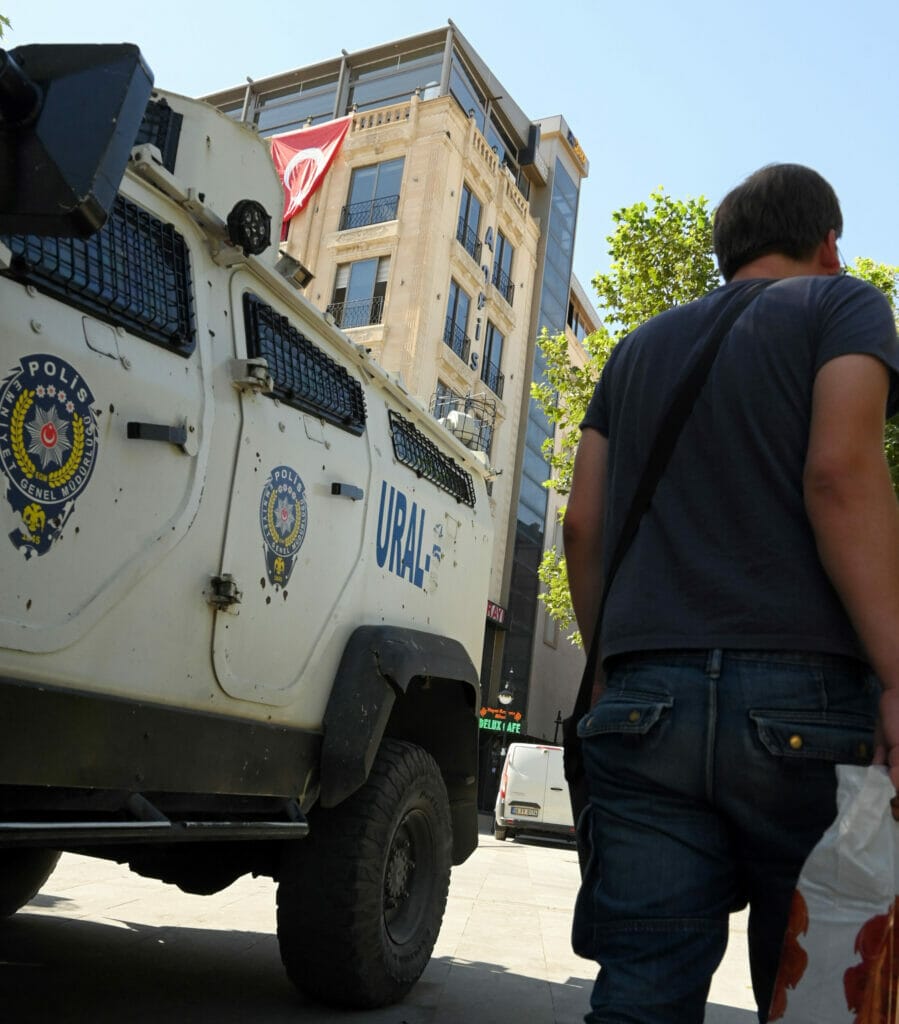
The kiosk owner says he experienced in his own environment how divisive, hate-mongering politics are affecting the region. Nusaybin is located directly on the closed border with Syria. Decades of close ties to Qamishli have been severed. “Our family was torn in two,” he laments. A relative has lived in Syria for 50 years, but they haven’t seen each other since 2005; with the border closure there is no longer any possibility.
In the tea garden at the Syrian border
Another kiosk with an adjoining tea garden is still open just a few meters from this border. People meet in the shade of the trees. From here yone can even see the moving cars in the neighboring town, as well as the smoke rising during fights. Things get a little hectic right at the border crossing when a herd of cows is allowed to cross the border – humans don‘t come across during the conversation.
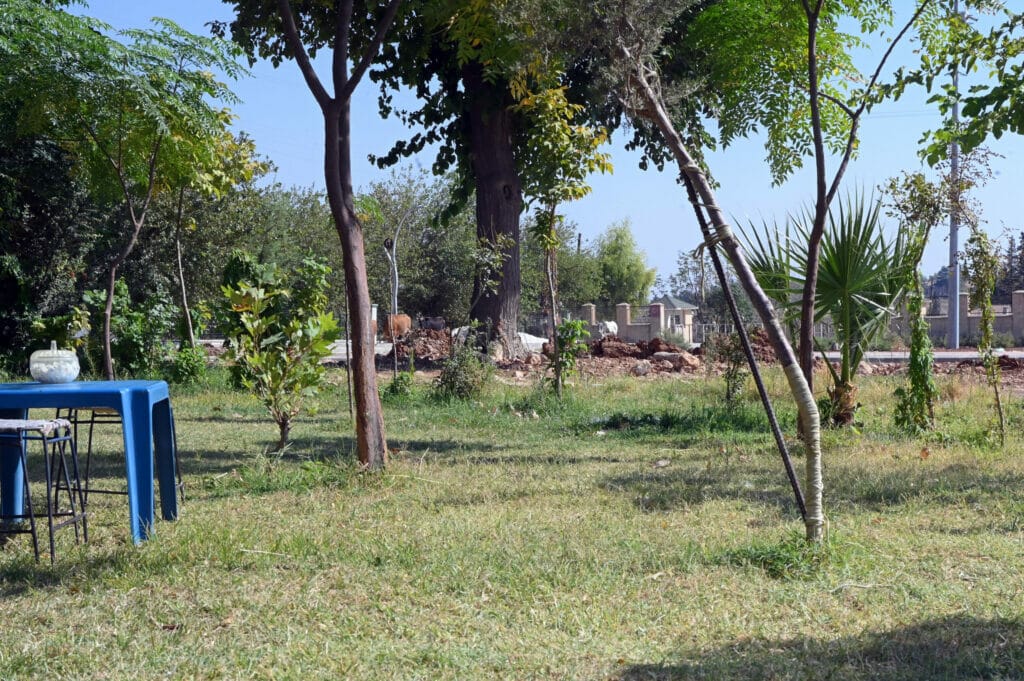
Bikas, 45 years old, was born on the other side. “When I was a child, we felt at home here,” he says of a time when borders were still foreign words here. Over there, the muezzin’s call to prayer sounds a bit delayed, even here the difference between the countries is noticeable. When asked about this, he laughs and shrugs his shoulders. As he walks along the fence that runs just before the border, he starts talking.
Families lived on both sides and easily commuted back and forth. After school, he simply crossed the border to play, he remembers wistfully. Today there is not just a fence and a wall behind it: border posts reinforce the impression of isolation. Around 30 years ago, as a teenager, he first heard about the conflicts between the Turkish state and the Kurdish population. “It was hard to believe because I experienced and felt it differently,” he recalls.
The war changes the region
Ten years later, the first wires could be seen on the ground, but trade flourished mainly due to the significantly cheaper products in Syria. The hard border followed with the revolution in his home country:
Immediately everything got more expensive, the border closed, electricity was cut off.
Because he is also Kurdish, Bikas decided to go to Nusaybin. He was welcomed by the Turkish government and people. However, within the Kurdish community, the flight of Syrian Kurds to Turkey has caused social tensions. In the meantime he has built a life here with his family and is happy and found friends.
Long preliminary talk
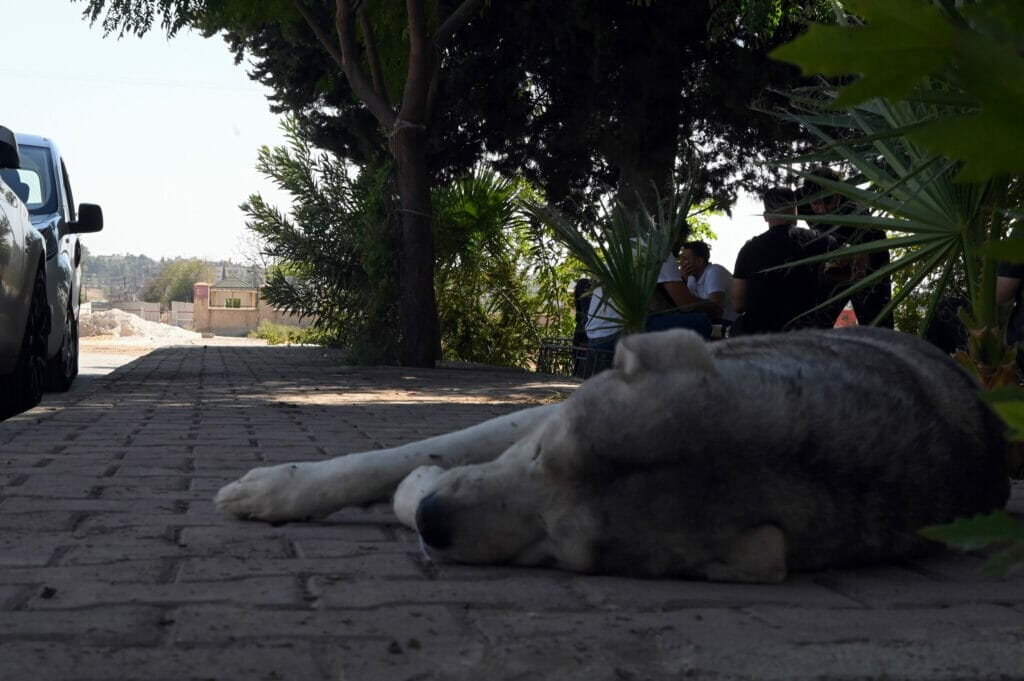
Mikkael, Ahmed and Ibrahim also live in Mardin province. They don‘t want to read more details about their place of residence and their real names in the report; the fear of persecution by the Turkish government is too big. The invitation to the house for the actual interview is preceded by an hour-long preliminary talk with food and tea in various public places. They want to make sure that they can trust their guests, gradually approaching more political topics – always on the lookout for possible unwanted audience
The basic distrust of strangers in discussions about politics stems from experiences with state power. They had it themselves since 2015 as a result of the Turkish war against the Kurdish population. Ibrahim, 45, said the Turkish military came to his house one day to look for members of the PKK. “They tortured me, beat me and threw me off the first floor,” he recalls several broken bones. He has nothing to do with the organization, he underlines. The military then blamed them for the incident.
Reoccuring patterns
Such statements can hardly be independently verified in retrospect. In numerous cases, however, the struggle for the sovereignty of interpreting such events can be understood, as in the case of Selamet Yesilmen. The 44-year-old mother was killed by a bullet in November 2016. While Kurdish media describe the event in detail as an act of the Turkish police, Turkish media only consider it worth a short note referring to “terrorists”. Such a pattern shows up frequently, and the truth remains hidden for outsiders. However, those affected repeatedly blame state units.
In the 2016 annual report on Turkey, the EU Commission estimated that 355,000 people were internally displaced and spoke of “war-like” conditions and “disproportionate destruction of private and communal property and infrastructure by heavy military artillery. The year before, it had spoken of a “resurgence of violence by the PKK” and groups close to it, as well as a “comprehensive government response”. In 2016 it was also said:
There were many credible reports of alleged human rights abuses perpetrated by the security forces, including torture, ill-treatment, arbitrary arrests and breaches of procedural law.
New laws governing the burial of the bodies of unknown persons have reportedly prevented proper forensic examinations, which would have been necessary for judicial investigations.
The violence continues
These same human rights violations are still going on, the three say: threats, violence, murder. “There are many things that the Kurdish people are ashamed to tell. They are raped and killed. If you are Kurdish, you will immediately be labeled as PKK and a terrorist,” says Mikkael. They didn’t tell these stories because they were for the PKK or YPG, but against violence: “If they want to fight the PKK, they should go to the mountains, but not attack civilians.”
His own property is a daily reminder of the violence that has unleashed on Nusaybin since 2015. There are signs of war right on the small canopy in front of his front door, something has obviously exploded here and torn a hole in the brickwork.
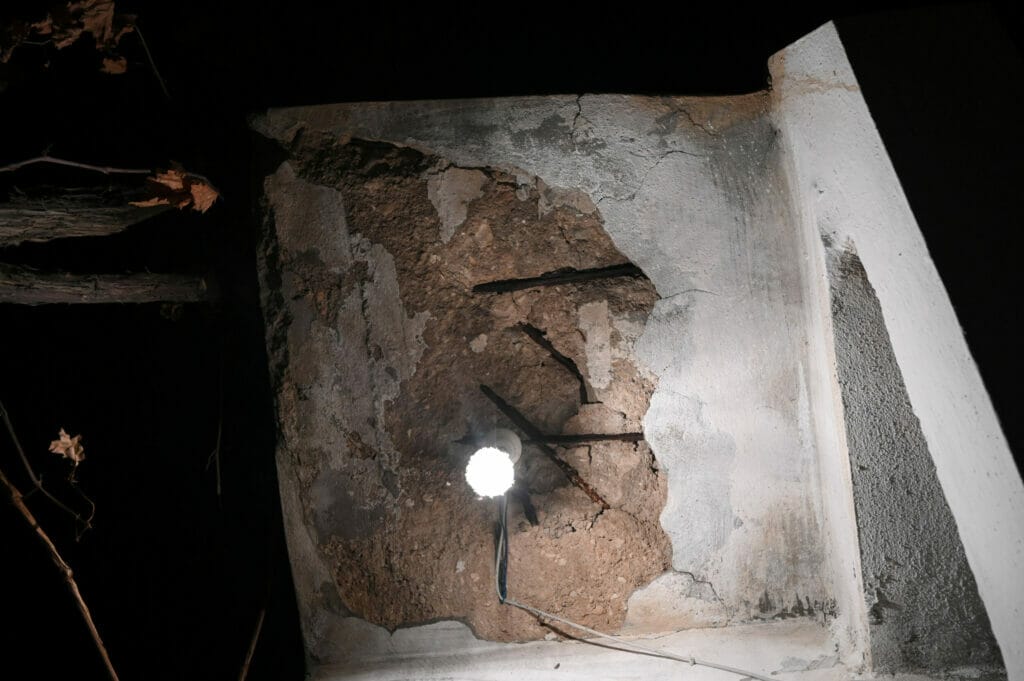
Terrorism under false flag
A photo they show dates from 2016. A phosphorus bomb with the words “Made in Turkey” written on it. “The YPG doesn’t get anything like that,” says Ibrahim. He also saw for himself how the Jandarma, a paramilitary association, accompanied a tunnel construction in order to then bomb it and blame the work on terrorists.
In Turkey, a Kurd can basically achieve anything, Mikkael sums up, including going into politics. But it is not possible to be recognized as a Kurd as one has to deny oneself if one wants to achieve something.
Vorgeschlagene Beiträge
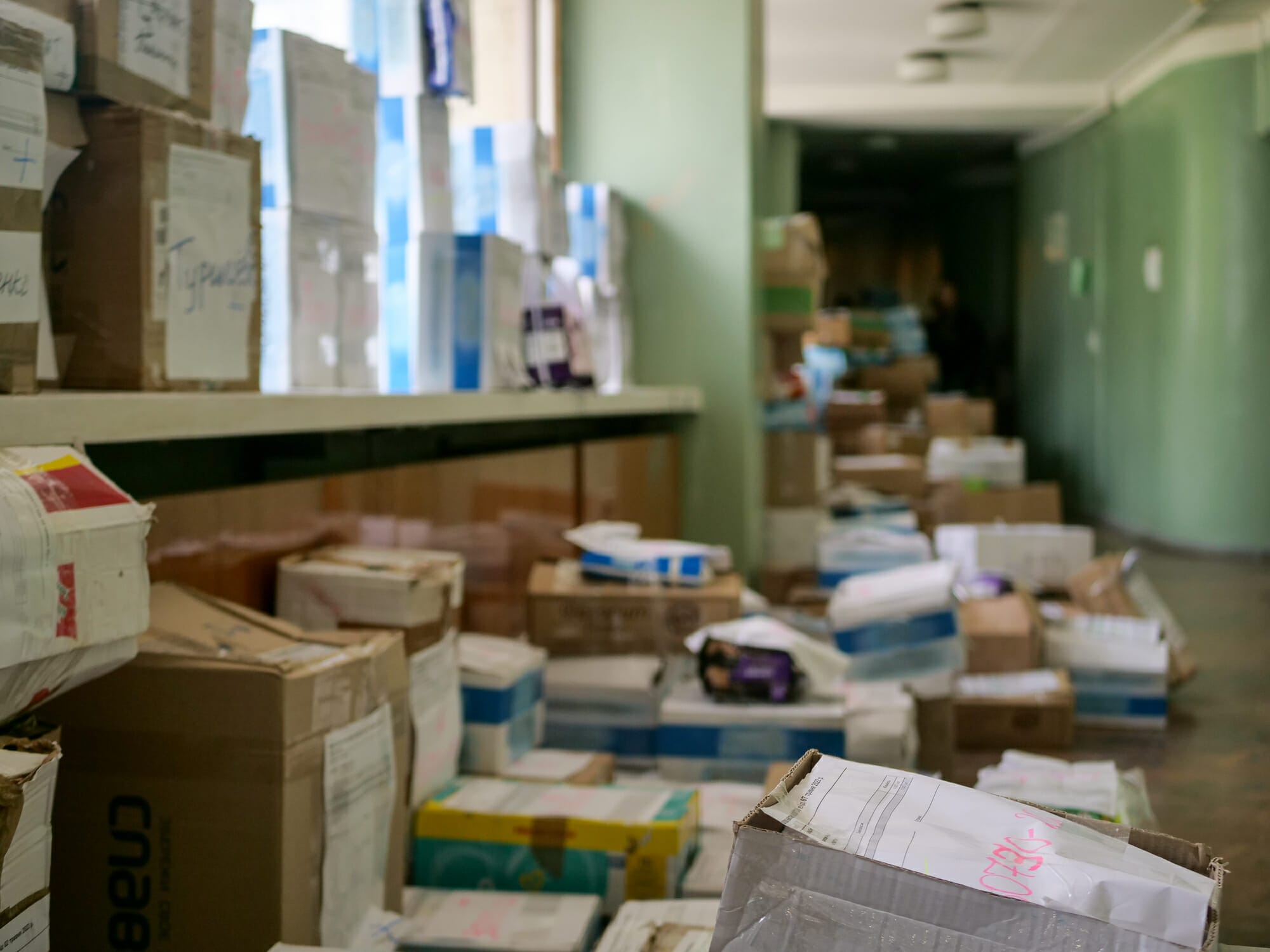
How young people in Dnipro provide humanitarian aid
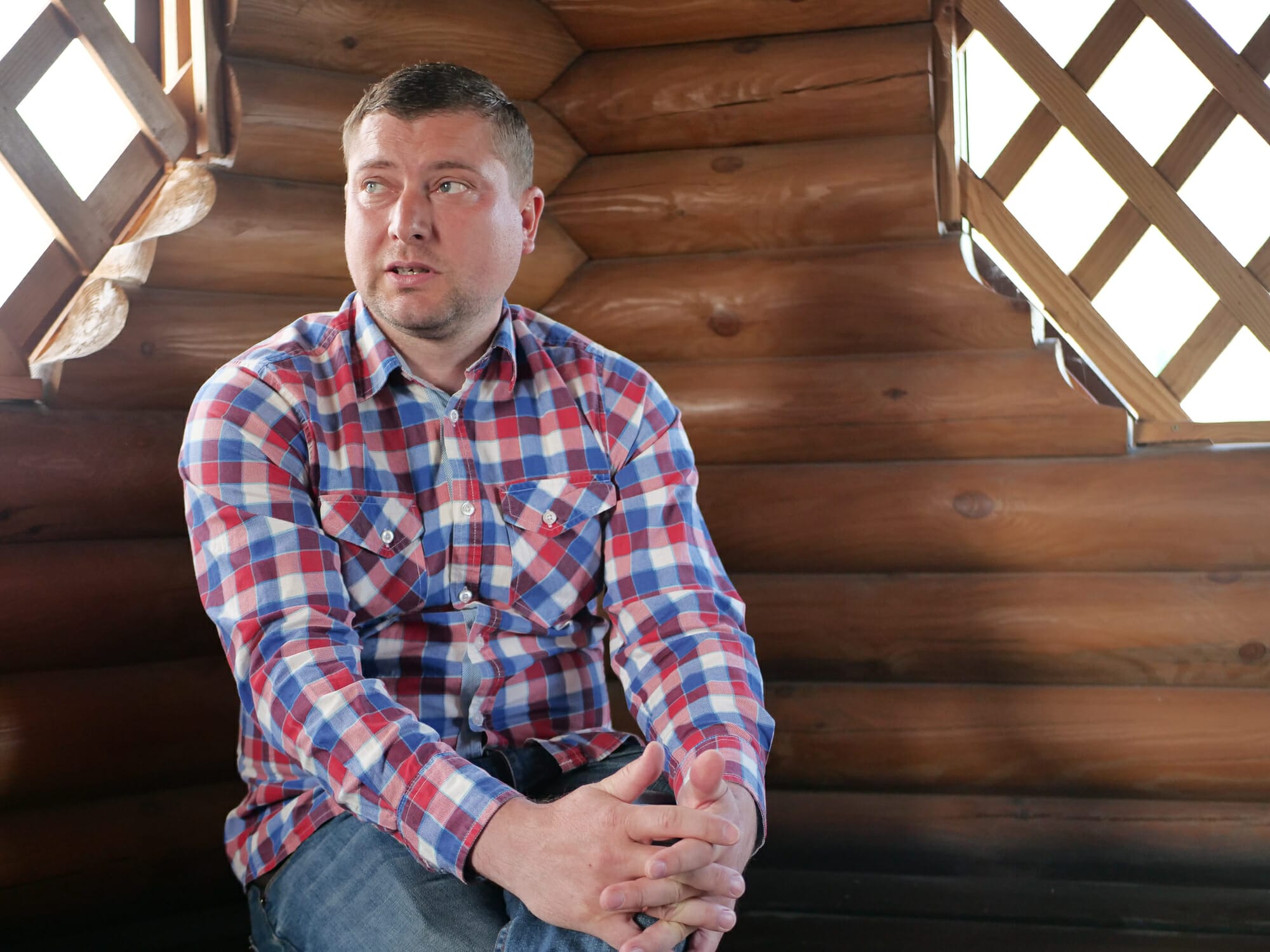
Dmitro Soochekov’s painful return to Bakhmut
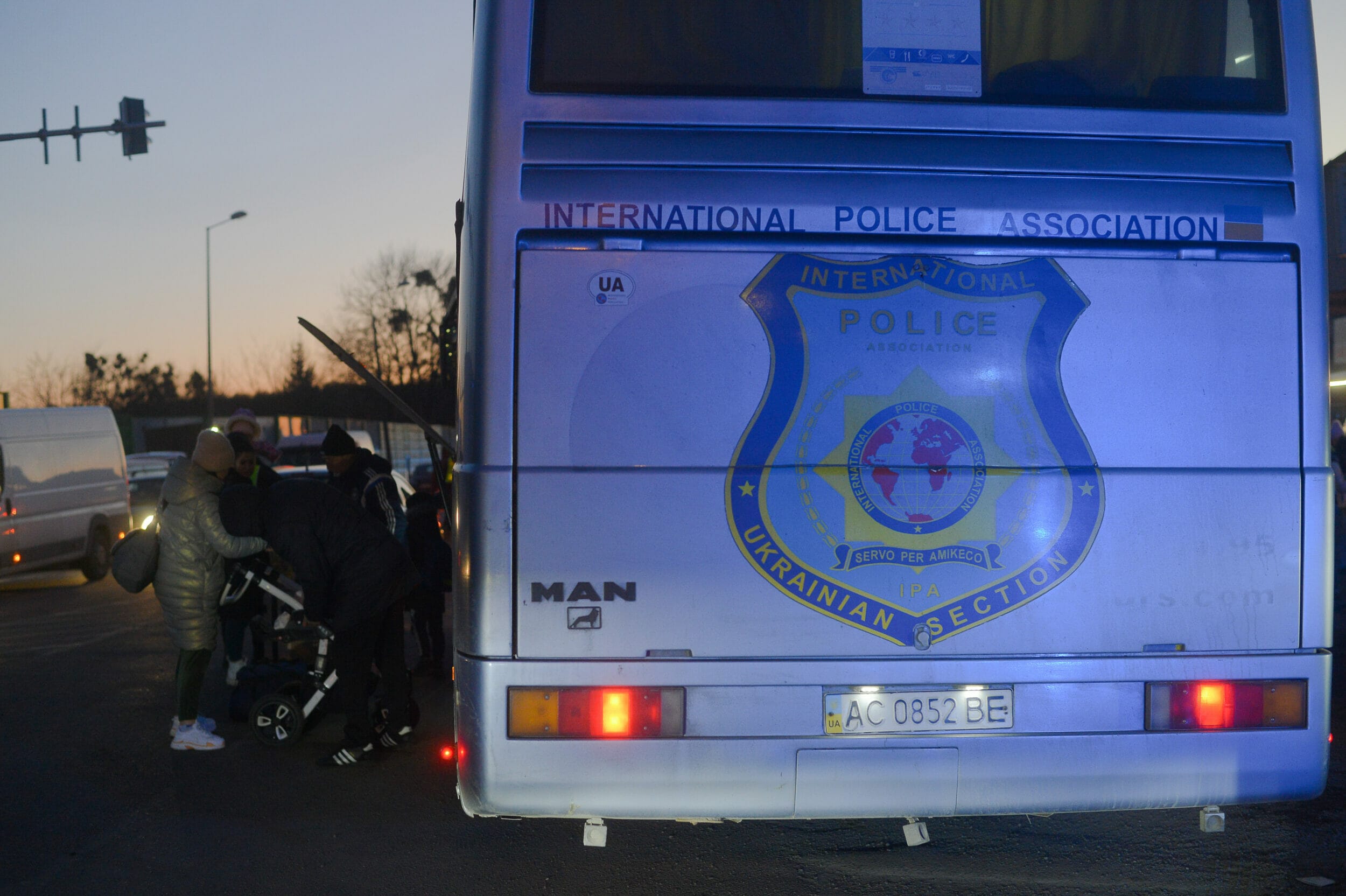
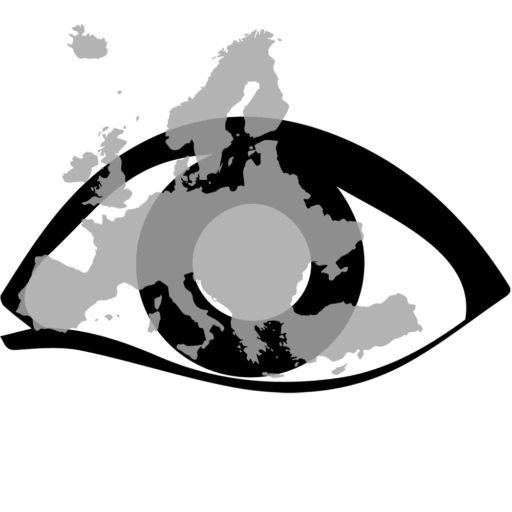
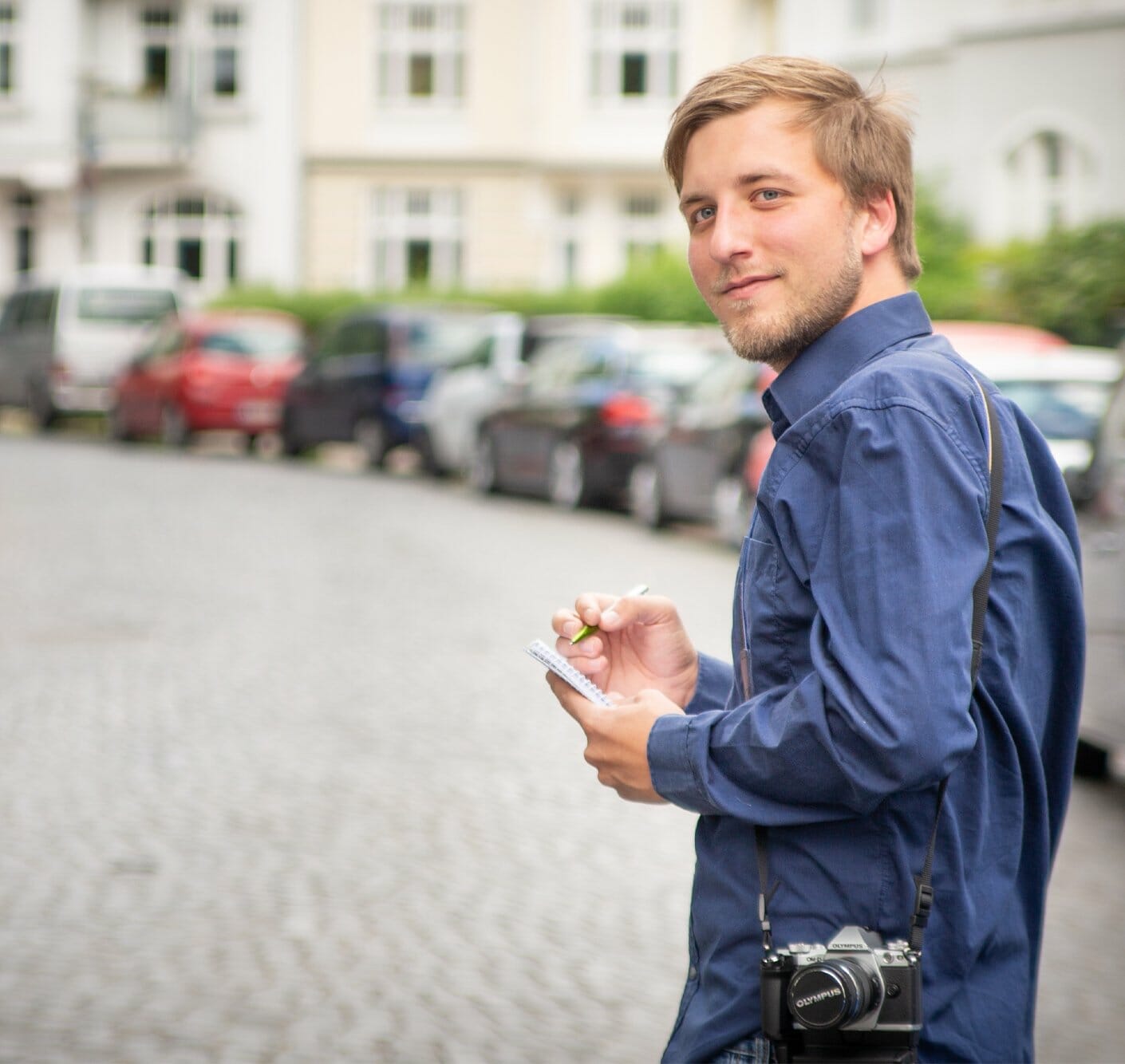
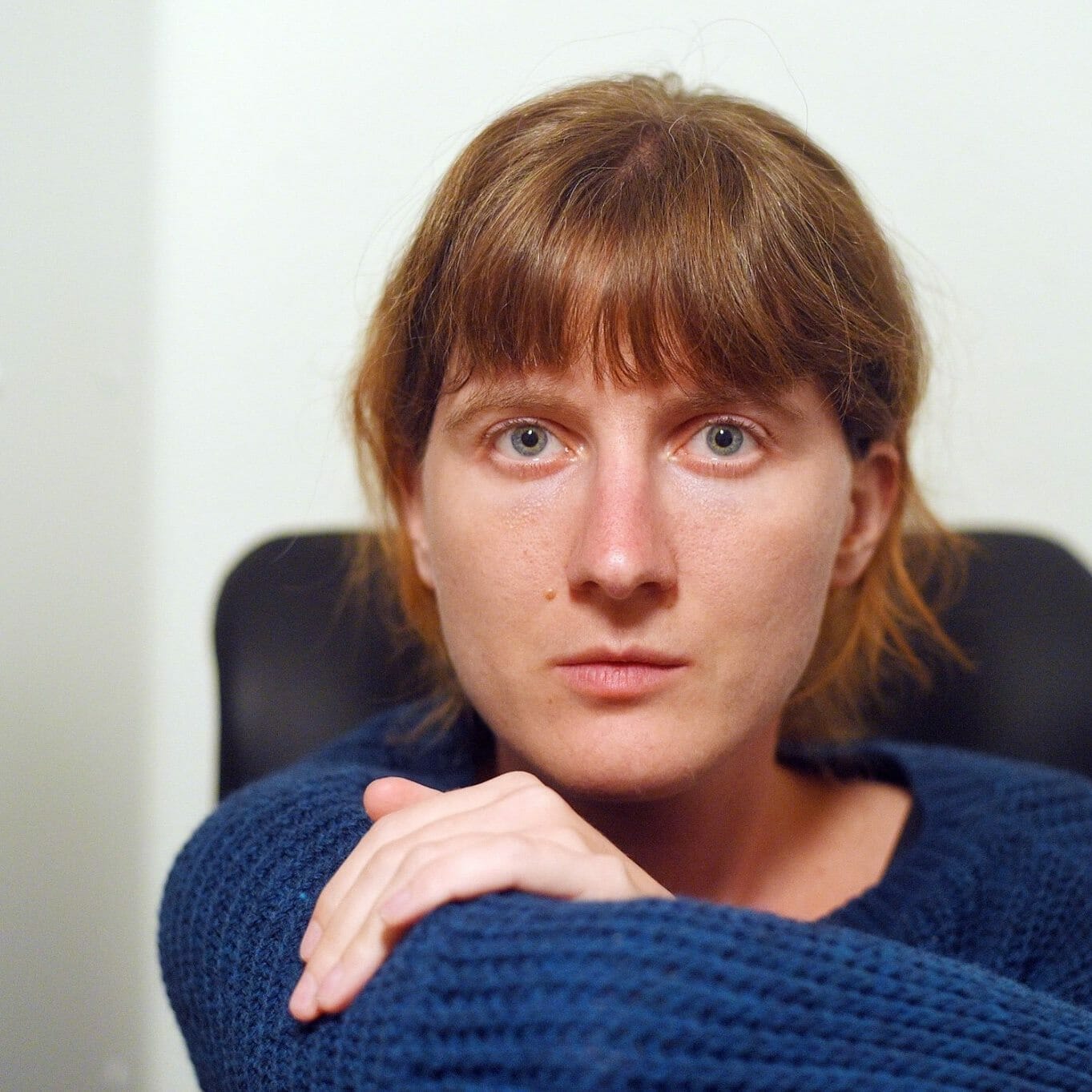
Leave a Reply
You must be logged in to post a comment.